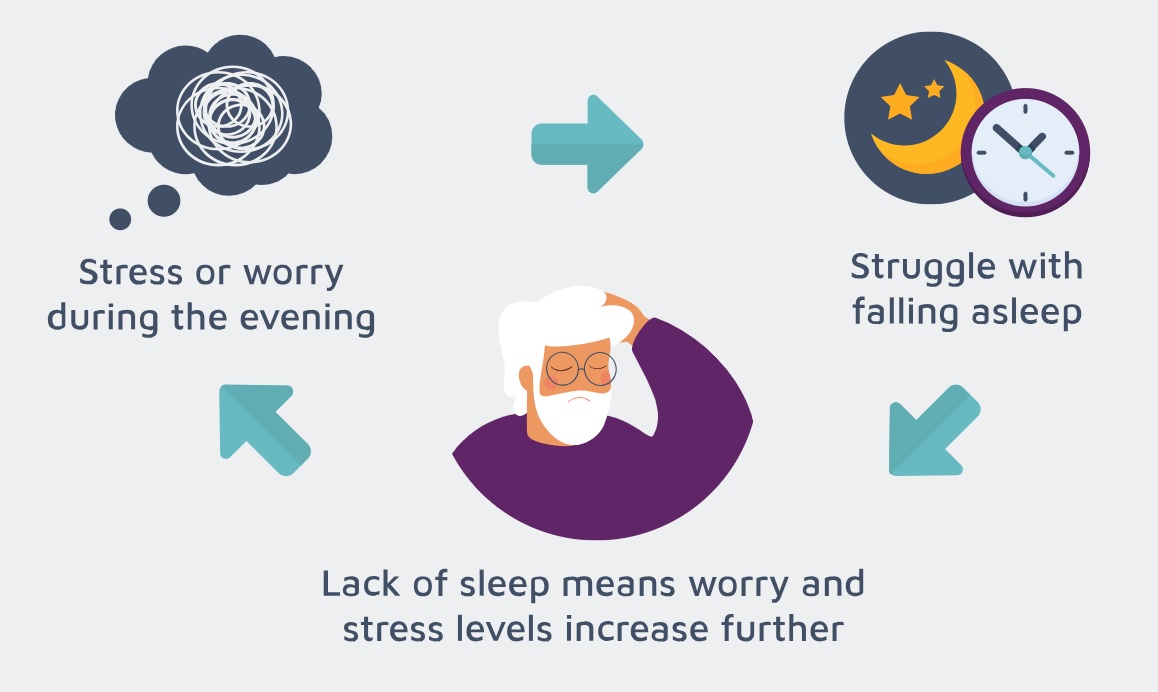Sleep and Mental Health
Text-To-Speech
If you are stressed or worried during the evening, you are more likely to struggle with falling asleep as your arousal levels will continue to be high when trying to fall asleep. This will then affect how you are feeling the next day as you will be unrested, and your worries and stress levels will most likely increase even further.
Most people report being irritable, if not downright unhappy, when they lack sleep. Over time, this continued pattern of poor sleep and increased stress could significantly impact your overall mood and daily functioning. Lack of sleep itself also puts your body under stress and may trigger the release of more adrenaline, cortisol, and other stress hormones during the day. These hormones keep your blood pressure from dipping during sleep, which might even increase your risk for heart diseases in severe cases.

Text-To-Speech
Therefore, when it comes to our mental health, sleep helps us to feel more emotionally stable and increases our resilience to stress. Without sleep, our ability to think rationally and to regulate our emotions is compromised, potentially worsening the effects of an existing mental health disorder or increasing our risk of developing one.
Still, it’s important to realise that some degree of sleep disturbance every now and then is normal and that we have the capacity, for the most part, to manage during a period of poor sleep.
The link between mental health and sleep issues means that treating one issue often has a positive effect on the other.
